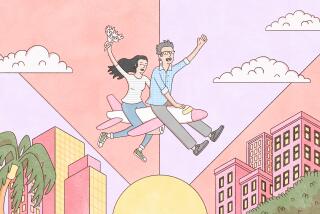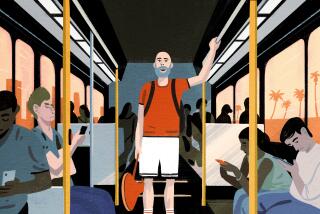Sorry, just a little misunderstanding
She held her gun like a mother holding a child, the butt of the rifle nestled against her hip. Her finger rested on the trigger, and the barrel leaned on her shoulder. She was at ease with her power, confident of her control. She was to be taken seriously.
Believe me: I didn’t mean to laugh. Insulting her authority as a border guard was the furthest thing from my mind. I didn’t intend to belittle her relationship with her rifle. Quite the opposite; I was profoundly intimidated by her threat of imprisonment. But a long bus ride in Africa can do strange things to a person.
My particular journey swept north from the Tanzanian capital, Dar es Salaam, to the Kenyan coastal town of Mombasa. Like many of East Africa’s roads, this stretch of highway had accumulated several ominous nicknames. Nevertheless, I was told it was well traveled, and I figured what worked for thousands of Kenyans and Tanzanians would suffice for me.
I had been in East Africa for several months, living, studying and traveling. I had cooked with coastal Swahili women, lived with a rural Samburu family and partied with urban Nairobi youth. I had endured jellyfish stings, fleas, mosquitoes, bedbugs and god-knows-what-that-was bites. I had had food poisoning, felt the rash of ringworm and swum in the delirium of malaria. I could handle a one-day bus ride.
I boarded the bus with a friend, a woman who impressed me as a pretty tolerant traveler. She was acclimated to Africa’s different sense of time, space and smell, accepted Third World inconveniences with humor and viewed whininess as a personality fault. Whether lost in blacked-out alleys in Zanzibar or bathing in croc-infested rivers in the Serengeti, she proved to be reliably thick-skinned.
We boarded early and squeezed into a pair of seats in the rear of the bus. Over the next hour, the vehicle gradually filled with people, packages and pets. Livestock and limbs were crammed into, under and on top of every seat. The aisle became a human wall. I was lucky enough to get the window seat, so I could hang part of myself outside it, but my less fortunate companion fell victim to the aisle overflow, becoming a human chair for a man who smelled like a walking latrine.
Thus in place, our bus set off for what would prove to be one of the longest 350 miles of my life. I had felt fortunate for sitting next to the window, but this proved to have drawbacks. With the metal bus conducting heat like the aluminum lid on Jiffy Pop, bodies sweating and animals defecating, you would have expected agreement on the benefits of ventilation. Yet any effort to crack open the window incited a venomous response from the woman behind me: She’d mutter and thrust the window closed. I’d reopen it and wedge a part of my arm in it, and she’d press back. My skin growing pale, my hand tingling and numb, I’d submit, and the window would clamp shut. Watching our driver speed past wrecked buses littering the roadside and pass cars on blind corners was not heartening.
Several hours into the ride, when my companion insisted we change seats, I welcomed the swap. My partner took on the window woman with dogged determination, throwing her entire upper half through the window and pushing back as if in a life-or-death game of tug of war.
I was becoming concerned for my friend, who began complaining in English and Swahili alike, not caring who heard or what impression she gave.
Of course, the rules of travel dictate that only one person can lose it at a time. My friend’s cracking tolerance only made me stiffen my resolve. I convinced myself the pressing bodies were cozy and accepted this as a test I would soon pass.
In no man’s land
Hours grated by. People got on, but fortunately more got off. The toilet man found a seat in front, and the window woman relented to my companion’s determination. I was no longer so focused on the wrenching smell, but I soon noticed that all the kids on the bus, human and goat alike, were crying.
The driver responded by drowning them out with blasting reggae dance hall music, sickeningly cheerful and nauseatingly loud. My companion curled into a fetal position and moaned. Four hours later we were at the Tanzania-Kenya border. Out of the bus, away from the pressing heat, smell and noise, I thought we might have a chance to reacquaint ourselves with our sanity. Alas, after we’d waited in line for more than an hour, for unclear reasons involving a lightbulb and a lack of electricity, the border closed down. No more passports were taken, no more entries allowed.
Time skipped like a bad record caught in a tiresome groove.
At last we were across the border, in the no man’s land between Tanzania and Kenya, when our bus got a flat tire and we were forced to get off. The toilet man found his way back beside us. I was tired. I was weary.
My friend’s face was caught in a horrid grimace, and she babbled incoherently. Something deep in me ruptured at that point. I started retelling the day’s horrors with fevered energy, a diatribe streaming from my lips like a burst dam. My companion seized on my weakness like a lifeboat, riding its gospel with empathetic yeses and my Gods. And then came the guard.
Disorderly conduct, I think she said. National law, I’m sure I heard that right. We dared sit and commiserate during the changing of the flat? Could that warrant time in a Third World jail? In retrospect, I don’t know why I dared talk back.
“What are you talking about?” I asked. “We knew of no such law. We can’t sit during the changing of a flat? This is absurd.”
Unfortunately, she did not appreciate my perspective. She threw out the words “law” and “jail.”
I spun wildly out of control. I argued. I laughed. She swung the muzzle lower and threatened again. I said their laws were unjust. With their roads so rutted and tire punctures so frequent, no wonder nothing ever got done.
Her grasp on the rifle only grew tighter. She continued using terms like “prison” and “arrest,” putting them in a context that made them seemed less like threats than an impending condition, while I continued using insults.
Somewhere in my tirade -- I think it was about the time she pointed her rifle and told us to come with her -- my focus wandered to the toilet man. His gaze was turned upward, and I followed it.
There I saw it: a flash of green and red in the corner of my eye as the Tanzanian flag was hoisted up a nearby pole. I looked down from its waving nationalism and saw the small crowd that stood around it.
Only then did I realize that I had not only insulted her English pronunciation but also offended her national pride. I tried to explain I thought she said changing of the flat, not changing of the flag. I bowed as humbly as I could and struggled to convince her of my respect for her country and her authority. She ignored my apology but allowed us to escape to the bus. I peeked out at her once I found a seat, and I swear the barrel was still pointed at me.
It was hot, and the break had not improved either the smell or the heat. The next six hours passed much like the first -- painfully.
When we finally reached Mombasa, I lurched off that bus like a drunk. No, I was not as tough as I would have hoped. I could not completely suppress the ugly American that dwelt within. But staggering toward my hostel, I still managed a strut in my step.
*
Alicia Rebensdorf is working on a book about a trip around the U.S.
More to Read
Sign up for Essential California
The most important California stories and recommendations in your inbox every morning.
You may occasionally receive promotional content from the Los Angeles Times.










